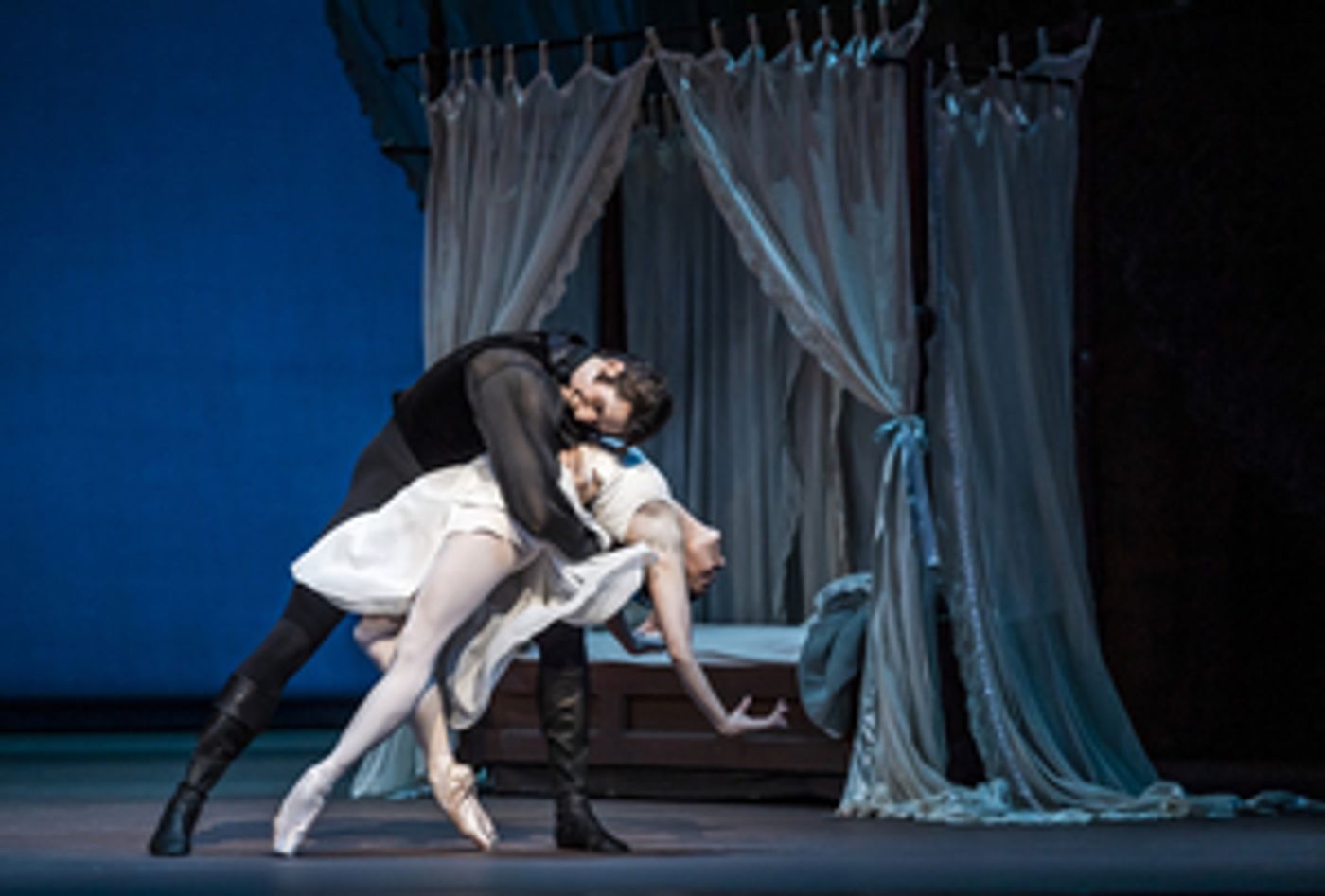Review: ONEGIN, Royal Opera House

![]() John Cranko's Onegin was last performed by the Royal Ballet in 2015. Now, five years later, there is a new wave of rising stars who are keen to showcase their take on the great dramatic classical roles on offer, and how palpably Onegin is a ballet that needs those stars. With only four key characters, the corps are on hand to fill the lighter moments, but all eyes are on the romantic entanglement at the centre of the story.
John Cranko's Onegin was last performed by the Royal Ballet in 2015. Now, five years later, there is a new wave of rising stars who are keen to showcase their take on the great dramatic classical roles on offer, and how palpably Onegin is a ballet that needs those stars. With only four key characters, the corps are on hand to fill the lighter moments, but all eyes are on the romantic entanglement at the centre of the story.
Onegin tracks the story of a bored aristocrat, Eugene Onegin, who spends much of the opening scenes removing himself from the advances of a naive and fanciful young lady named Tatiana. Her far more carefree sister Olga is betrothed to the simpler, but easily manipulated Lensky.
When Onegin one night begins to flirt with Olga in front of Lensky, and the latter subsequently challenges him to a duel, Onegin shoots him dead. The action then moves to years later: we meet him again, a shell of who he was. He has realised his love for a now married Tatiana upon seeing her, but it is too late and she rejects him.
Fresh from his promotion to First Soloist, Reece Clarke's Onegin finds him sharing the stage with three other established Principals, including Francesca Hayward and Matthew Ball. His love interest Tatiana is the ever-watchable Natalia Osipova, whose anguish and torment are completely compelling throughout. The audience can tangibly feel the emotion pouring out from her in the intense letter writing scene in Act One. Clarke broods and stalks the stage menacingly, but his partnering does not come up to Osipova's level of one who is so entirely absorbed in a role, it's hard to tear your eyes from her.
Long-standing balletomanes have come to love Onegin for its drama and meaty central roles, but Cranko's choreography does have an unfamiliar momentum and would not necessarily be recommended as a ballet for those new to the art form. There is heartfelt storytelling and an opulent, sophisticated set from Jűrgen Rose, but the story requires focus and the choreography of the corps feels generic. Kurt-Heinz Stolze's score is a stitching together of Tchaikovsky's original, yet only serves as background to the impassioned performances.
For those lucky enough to dance the central roles (many debuts follow in this run) there is a lot to explore and unpick. A successful interpretation requires great emotional intelligence and experience to translate the complexities on stage, and it's something Clarke has not quite mastered yet, although he is firmly on his way.
Ball's Lensky has arguably greater opportunity to impress through dancing and an easier storyline than Clarke, and he delivers a fine and musical solo before Act Two's duel, which hits a melancholy tone. Francesca Hayward's light, bright Olga is danced with beautifully compact, neat flourishes in her jetés and pirouettes that tie up the opening garden party scene.
However, it's hard to distract from Osipova's vividly portrayed Tatiana - but never more so than in the final pas de deux. She is now married to her earlier intended suitor, Prince Gremin (a devoted and well cast Gary Avis), before Onegin comes to declare his love to her. The last five minutes are engrossing: it feels a long time coming, but Osipova's trembling frame as she tears up Onegin's letter is a powerful and memorable closing image that allows for a satisfying conclusion.
Onegin is in repertoire at the Royal Opera House until 29 February
Image: Tristram Kenton
Reader Reviews

Videos

